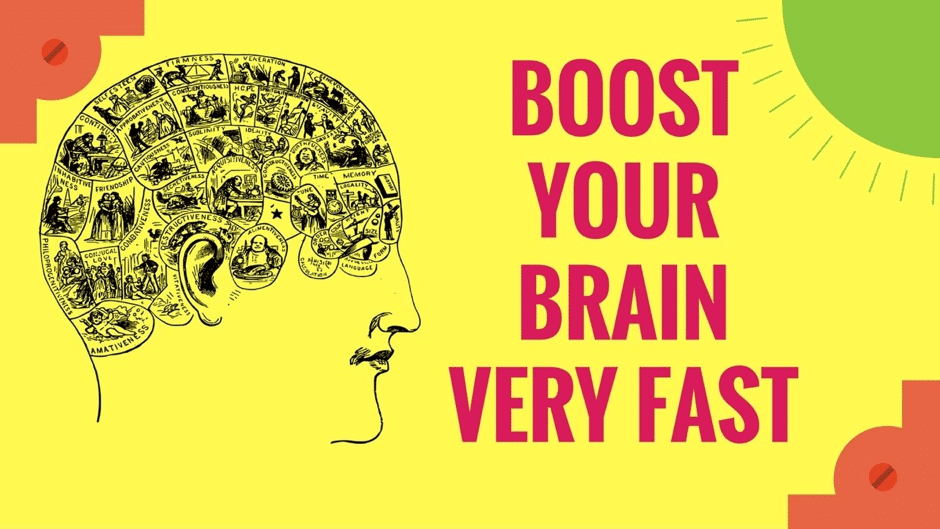Despite incredible developments in medical research and technology, you still hope for a miracle to happen when cognitive function starts to decline. There is no such thing in the pharmaceutical arena that can reverse the effects of brain degeneration. However, not many things can be written down on a prescription pad but are validated by scientific research that you should definitely consider for restoring various parameters of brain activity.
According to recent statistical claims, once you turn 65 years old, the chance of developing Alzheimer’s disease doubles every 5 years. It is therefore imperative that you do everything possible to nurture a healthy brain. Your lifestyle and, most importantly, your food choices are two of the most influential variables you can control for optimum functionality of your brain.
The need to optimize
The advice for brain optimization comes from the CEO of InventHelp, Robert Susa. He spends a lot of time thinking about how to make a human prototype visually appealing. “Whether you are thinking about what to do next on your business plan, or how to market your product to your target audience, it involves a massive amount of brainpower and creativity,” he explains.
With simple yet effective tweaks to your daily routine, you can definitely up that brain power and creativity.
- Exercise improves retention
Obesity leads to various diseases that can cause serious harm to the body as well as brain functioning. Moreover, lack of exercise can build up plaque in the arteries and blood vessels, making them inefficient at pumping blood. This doesn’t just lead to heart attacks but also reduces the amount of oxygen and nutrients that your blood carries to the brain. The brain’s ability to function is, hence, compromised.
Regular exercise such as taking walks, cardio classes with friends or a long distance hike, can greatly enhance thinking and memory retention. According to Susa, keeping your body in standardized motion can also give your brain a rest from work-related thoughts.
Resultantly, your mind gets refreshed and thinks more intelligently. Therefore, it is recommended that you keep moving, even if it is just a 15-minute elliptical course. Exercise is essential for maintaining brain acuity.
- Make excellent eating choices
Making intelligent and healthy food choices aren’t just good for your heart, they are also necessary for brain functioning.
- Fish and veggies
Eating foods that contain a healthy mix of fats is essential for long-term memory. Some excellent food choices would include fish such as mackerel, wild salmon, anchovies and dark leafy green vegetables.
- Omega 3 fatty acids
Omega 3 fatty acids are found in foods such as walnuts, eggs, leafy greens, fish including salmon, trout, herring and oils such as flaxseed and chia. These foods improve concentration and fight memory loss. They also help you remember conversations and connections you have with other people, as well as any random 3am-thought that could prove to be useful later on.
- Eat eggs for breakfast
Having a healthy, filling meal first thing in the morning has been shown to improve overall performance throughout the day.
An ideal breakfast is the one that includes eggs. Eggs contain all essential B vitamins needed to help nerve cells burn glucose, antioxidants that prevent damage to neurons and omega 3 fatty acids that keep nerve cells working at an optimum level..
Other foods that you can potentially add to your breakfast include fruits, lean protein and veggies. Try to avoid Trans-fats such as high fructose and corn syrup as they tend to deteriorate the brain cells’ abilities making them weak and unable to effectively communicate with one another.
- Eliminate the stressors
With time, major stress factors like anger or anxiety start to eat away parts of your brain responsible for memory. One of the most severe brain-damaging stressor is depression; often diagnosed as a memory problem since one of its primary symptom is the inability to concentrate.
Depression increases the cortisol levels in your bloodstream. Doctors have found out that an increased cortisol levels in the brain can diminish certain parts of it, especially the hippocampus, the area where short-term memories are stored. Prolonged depression can weaken the brain’s ability to retain anything new.
- Listen to music
New research has found that certain types of music can be beneficial for recollecting memories. It’s believed that information learned while listening to a song is often remembered by recalling the lyrics of the song or playing it mentally.
- Try herbal remedies
Medical herbs are best known to reduce stress and fatigue that make you unsuited to face life’s challenges. Chamomile is an amazing tea herb that has been used for centuries to calm frazzled nerves.
Due to its mild sedating quality, it is often used by individuals having stress-related sleep issues. In a two-month study conducted by the University of Pennsylvania Medical School, 57 patients with anxiety disorders were reported to have experienced mood improvements due to the daily 220mg consumption of chamomile extracts.
- Get a good night’s sleep
Getting at least 7-8 hours of sleep every night can lead to a significant memory upgrade. While you are asleep, the brain gathers up recently acquired information and helps you get through the full spectrum of nocturnal cycles, essential for optimal brain activity during waking hours. Also, it is suggested to take short naps in between work as it doesn’t only reduce work stress but keeps your brain recharged and sharp for longer.
All of the aforementioned activities in this article can unarguably help in reshaping your daily life. Allowing your brain to change from its workaholic, stressed, unhealthy state into a free-minded flow might be the only thing you need to work out your as life’s grand agenda.

